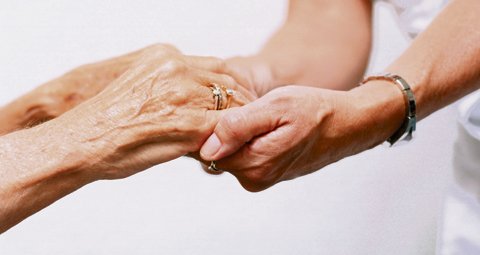BY Daniel Harkins | June 10 | ![]() 0 COMMENTS
0 COMMENTS ![]() print
print

Pope Francis hails the heroism of families who care for one another
Speaking during his general audience in Rome, the Pope said families must often take the lead in caring for each other.
Pope Francis has praised the ‘heroism’ of families who care for one another when ill.
Continuing his catechesis on the family, the Pope today addressed the thousands of pilgrims in St Peter’s Square on the topic of illness as part of his weekly general audience.
It is the family that most often takes the lead in caring for one another, the Holy Father said, adding that when someone in our family is sick we feel it even more deeply, and that it is harder for a mother or father to see their child fall ill than to be sick themselves.
Praising the care and compassion of family members for those who are sick, the Pope said that ‘these things are heroic, they are the heroism of the family!’
“We must give thanks to the Lord for those beautiful experiences of fraternity in the Church that helps families to get through difficult moments of sorrow and suffering,” he said, adding that this Christian closeness ‘from one family to another, is a true treasure for the parish: a treasure of witness, which helps families in difficult moments, and makes them understand better the Kingdom of God… these are the caresses of God.’
The Pope spoke about the many times in the Gospel in which Jesus meets the sick and heals them. “His desire to cure suffering is a central part of his ministry, coming even before observance of the law,” he said. “He sends his disciples to do the same, giving them the power to heal, and to draw close to the sick, touching their deepest wounds and bringing them peace.
“The illness of one person can be a severe trial for all family members. As followers of Christ, we are called to pray without ceasing for the sick and dying, and to support families where this is being experienced. So too we must educate children to solidarity with the sick so that they are not anesthetized to the sufferings of others, but rather are capable of helping the ill and of living fully each human experience.
“May we always give thanks to the Lord for the support of the Church shown to families in times of illness, especially between families themselves.”











